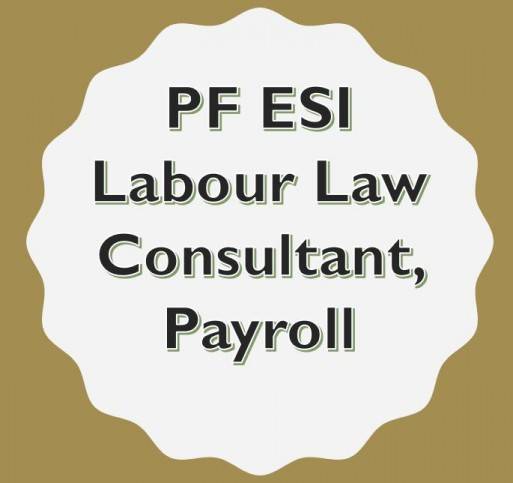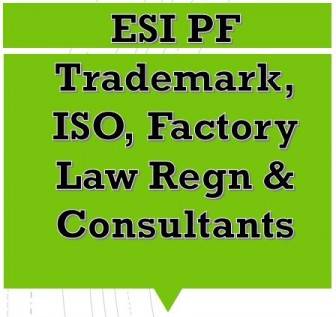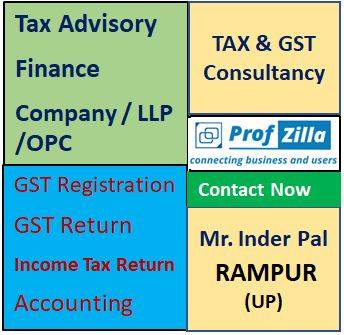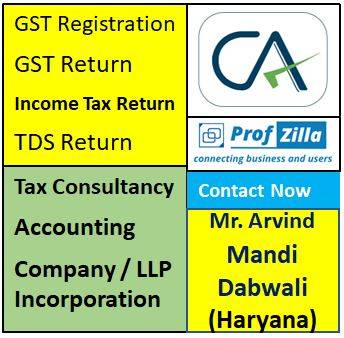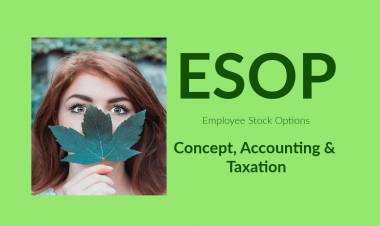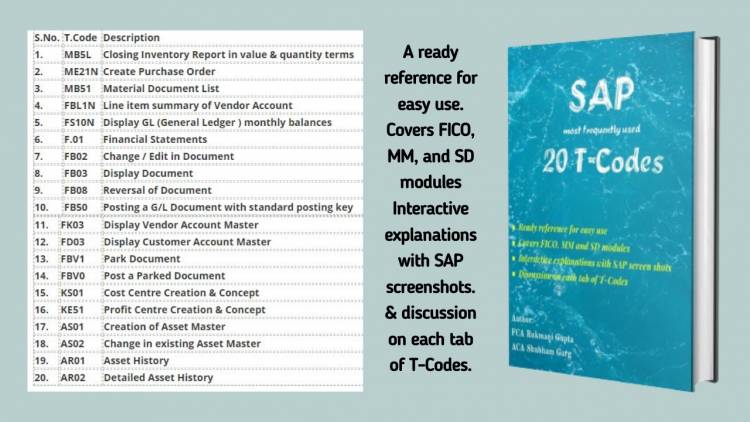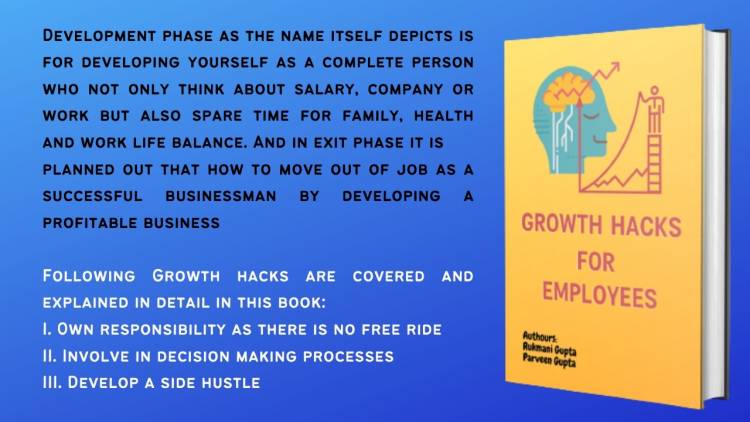Be Aware About Tax on Your EPF Contribution & EPF Withdrawal
EPF (Employee Provident Fund) has four components: -
- Employee’s Contribution
- Employer’s Contribution
- Interest on Employee’s Contribution
- Interest on the Employer’s Contribution
There are three types of EPF (Employees’ Provident Fund): -
- Recognized Provident Fund (RPF) – Fund approved by the commissioner of income tax.
- Unrecognized Provident Fund (UPF) – Fund set up private companies not approved by the commissioner of Income Tax.
- Statutory Provident Fund (SPF) – Fund set up for Govt or Semi Govt Employees & Govt owned Institutions & university employees.
Salary here means for EPF Exemptions is
Basic +DA +Commission if calculated as a % of turnover
Let’s first under the taxability on four components of EPF:-
1. Income Tax on EPF Employee’s Contribution (During Employment): -
RPF – Form part of gross taxable salary in the year of contribution but eligible for deduction u/s 80C up to 1.5 lacs
UPF - Form part of gross taxable salary in the year of contribution & no deduction u/s 80c is available
SPF - Form part of gross taxable salary in the year of contribution but eligible for deduction u/s 80C up to 1.5 lacs
2. Income Tax on EPF Employer’s Contribution (During Employment): -
RPF – Exempt from tax up to 12% of salary, any further contribution will form part of salary in the year of contribution
UPF – It is not taxable in the year of contribution by the employer.
SPF – Full Contribution of any amount is exempt from tax.
3. Income Tax on Interest on EPF Employee’s Contribution (During Employment): -
RPF – Exempt up to 9.5% rate of interest, any further interest will form part of the income from other sources in the year of receipt/ withdrawal.
UPF – Not taxable in the year of accrual. Full Interest is taxable in the year of receipt/ withdrawal as part of the income from other sources.
SPF – Total Interest is exempt from tax.
4. Income Tax on Interest on EPF Employer’s Contribution (During Employment): -
RPF – Exempt up to 9.5% rate of interest, any further interest will form part of taxable salary as profit in lieu of salary in the year of receipt/ withdrawal.
UPF – Not taxable in the year of accrual. Full Interest is taxable in the year of receipt/ withdrawal as part of taxable salary as profit in lieu of salary in the year of receipt/ withdrawal.
SPF – Total Interest is exempt from tax.
Let’s first under the taxability on four components of EPF (On Withdrawal):-
Income Tax on EPF Withdrawal from RPF (Recognised Provident Fund) -
PF Withdrawal from RPF after 5 years of continuous services is exempt from tax as under: -
- Employee’s Contribution – Fully Exempt
- Employer’s Contribution – Fully Exempt
- Interest on the Employer’s Contribution – Exempt up to 9.5% rate of interest. Any further amount is taxable as part of taxable salary as profit in lieu of salary in the year of receipt/ withdrawal.
- Interest on Employer’s Contribution - Exempt up to 9.5% rate of interest, any further interest will form part of the income from other sources in the year of receipt/ withdrawal.
EPF Withdrawal from RPF before 5 years of continuous service in case of a job quit except few conditions is taxable as below: -
- Employee’s Contribution – Not Taxable but if the employee has availed deduction u/s 80C, then the income of previous years will be recalculated as if he has not availed any deduction.
- Employer’s Contribution – Fully Taxable as part of Salary Income.
- Interest on Employer’s Contribution – Fully-taxable as part of taxable salary as profit in lieu of salary in the year of receipt/ withdrawal.
- Interest on Employee’s Contribution – Fully-taxable as part of the income from other sources in the year of receipt/ withdrawal.
In following conditions EPF withdrawal from RPF is not taxable even if he withdraws it before 5 years of continuous service: -
a. If the employee quits his job due to any of below reason: -
- Ill health
- The employer has discontinued his business
- Any other reason beyond the control of employee
b. The period of continuous 5 years is not necessary to be with one employer if someone changes his job & transfers his RPF account with a new employer who also contributes to the account, then the period with old & new employer would be taken together to calculate 5 years of continuous service. But if someone works off the roll or on contract in between even if for a month, then the fresh period of 5 years will be calculated from the day he started working on the roll.
Income Tax on EPF Withdrawal from UPF (Unrecognised Provident Fund) -
- Employee’s Contribution – Fully Exempt
- Employer’s Contribution – Full Contribution is taxable in the year of receipt/ withdrawal as part of gross salary.
- Interest on Employer’s Contribution – Full Interest is taxable in the year of receipt/ withdrawal as part of taxable salary as profit in lieu of salary in the year of receipt/ withdrawal.
- Interest on Employee’s Contribution - Full Interest is taxable in the year of receipt/ withdrawal as part of income from other sources
Income Tax on EPF Withdrawal from SPF (Statutory Provident Fund) -
- Employee’s Contribution – Fully Exempt
- Employer’s Contribution – Fully Exempt
- Interest on Employer’s Contribution – Fully Exempt
- Interest on Employee’s Contribution – Fully Exempt
TDS on EPF Withdrawal
In following cases no TDS would be deducted on EPF Withdrawal: -
- Any amount of EPF withdrawn after completion of 5 years of continuous service.
- Transfer of EPF to the new employer on change of job.
- If the EPF is withdrawn before 5 years of continuous service because of ill health, the employer’s business discontinuing or the reason beyond the control of employee.
- If the amount of EPF Withdrawal is upto Rs. 50000, even if it is withdrawn before completion of 5 years.
In other cases, TDS would be deducted at following rate on EPF Withdrawal: -
- No TDS if form 15G /15H is furnished.
- TDS @10% if PAN is provided.
- TDS @30% if PAN is not provided

 Download APP
Download APP
 Rukmani Gupta
Rukmani Gupta 



